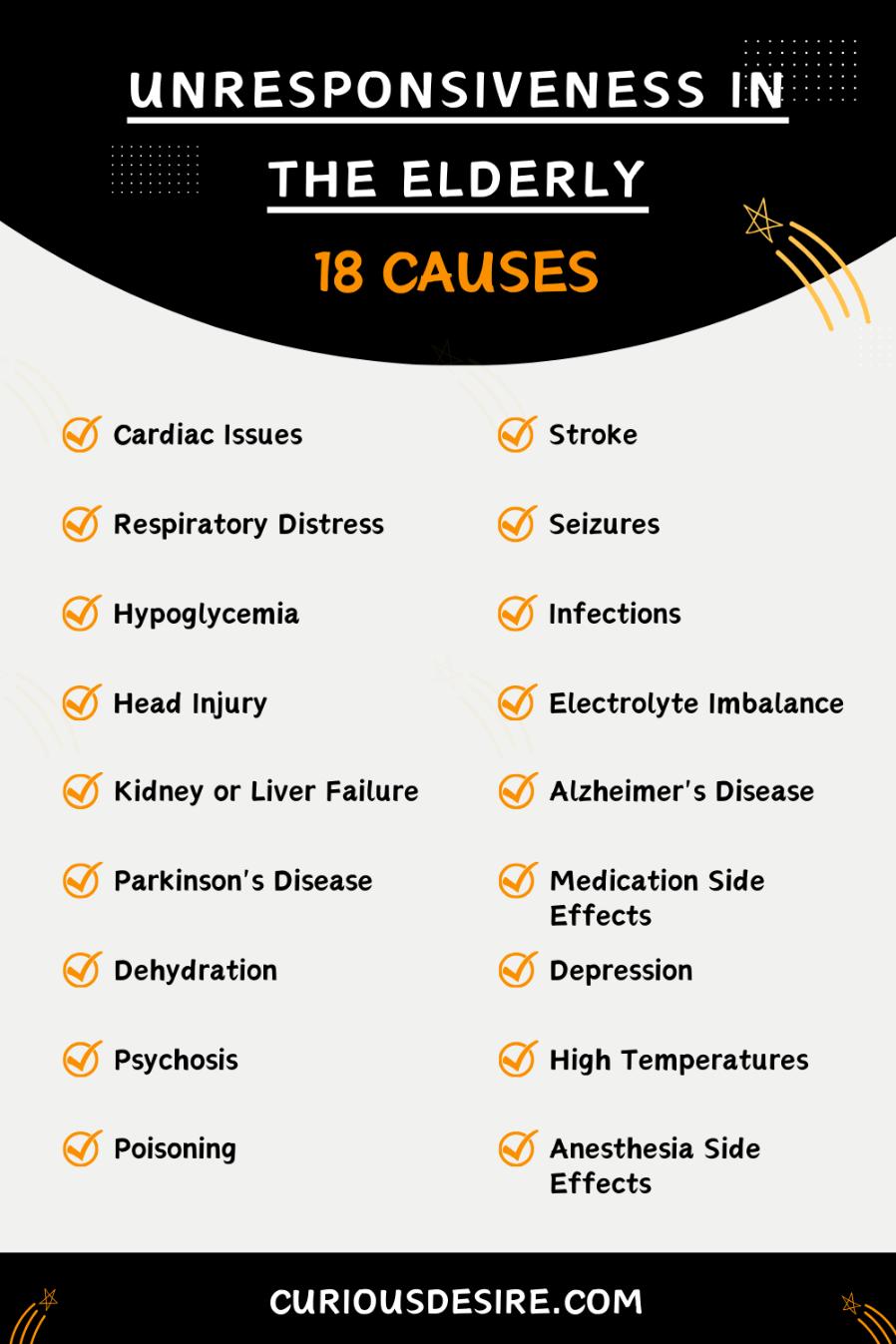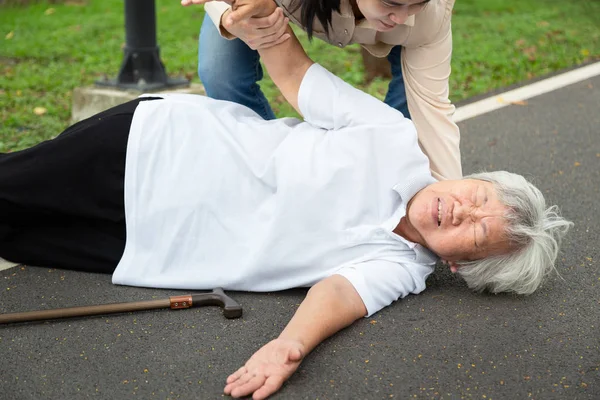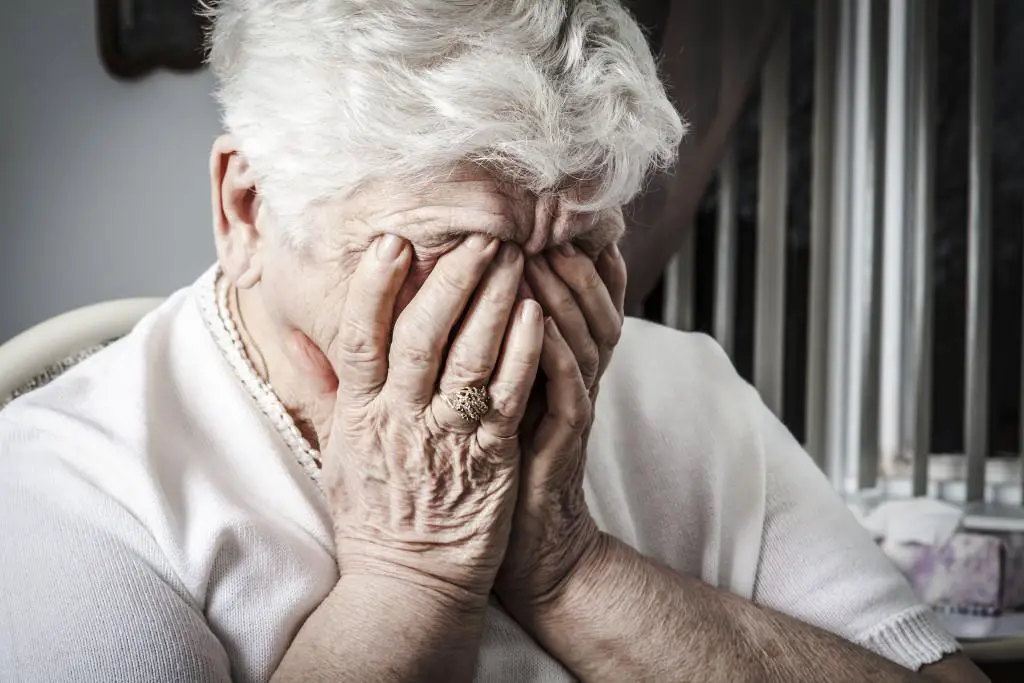As people age, they face numerous health challenges, with unresponsiveness being a significant concern.
This issue is often a result of a mix of medical, physiological, and environmental factors.
Recognizing and understanding these causes is crucial for caregivers and healthcare professionals to address and minimize their impact on an individual’s responsiveness.
In this article, we’ll discuss various possible causes of unresponsiveness in the elderly. Let’s get started!
Here are the top 5 causes of unresponsiveness in the elderly:
- Respiratory Distress
- Hypoglycemia
- Seizures
- Infections
- Alzheimer’s Disease or Dementia
[toc]

Cause 1: Cardiac Issues (Heart Attack, Arrhythmias, Heart Failure)
Cardiac issues are the main causes that pose a significant risk to the elderly, potentially leading to unresponsiveness.
A heart attack, resulting from a blockage in coronary arteries, can cause severe chest pain, shortness of breath, and, ultimately, loss of consciousness.
Arrhythmias, and irregular heartbeats, can disrupt blood flow, leading to decreased responsiveness.
Likewise, chronic conditions like heart failure, characterized by the heart’s inability to pump blood effectively, contribute to a gradual decline in responsiveness due to compromised circulation.
Cause 2: Stroke (Lack of Blood Flow to the Brain)
Strokes, often referred to as “brain attacks,” occur when the blood supply to the brain is interrupted, leading to a sudden lack of oxygen.
This deprivation results in the rapid deterioration of brain cells and can manifest as a sudden loss of consciousness.
Early recognition of stroke symptoms, such as facial drooping, slurred speech, and paralysis, is critical for prompt medical intervention to mitigate the impact on responsiveness.
Cause 3: Respiratory Distress
Severe respiratory problems, encompassing conditions like acute respiratory failure, can compromise the body’s ability to oxygenate tissues.
This lack of oxygen, termed hypoxia, can lead to a diminished level of consciousness.
Conditions such as pneumonia or chronic obstructive pulmonary disease (COPD) may contribute to respiratory distress, further impacting overall responsiveness.
Cause 4: Seizures (Epileptic Seizures)
Epileptic seizures, characterized by abnormal electrical activity in the brain, can result in temporary loss of control and consciousness.
The intensity and duration of seizures vary, with more severe episodes potentially causing prolonged unresponsiveness.
Individuals experiencing seizures require careful management and medical attention to prevent recurring episodes and their impact on consciousness.

Cause 5: Hypoglycemia (Low Blood Sugar Levels)
Hypoglycemia, stemming from low blood sugar levels, often occurs in individuals with diabetes or insulin-related conditions.
The insufficient glucose supply to the brain can lead to confusion, drowsiness, and unconsciousness.
It is imperative to promptly address and manage blood sugar levels to prevent hypoglycemia-related complications that affect responsiveness.
Cause 6: Infections (Sepsis, Meningitis)
Severe infections, such as sepsis or meningitis, trigger systemic inflammatory responses that can extend to the brain.
Inflammatory processes and the release of toxins may lead to altered mental states, contributing to unresponsiveness.
Timely identification and aggressive treatment of infections are crucial to prevent their impact on cognitive function and consciousness.
Cause 7: Head Injury
Trauma to the head, resulting from accidents or falls, can cause varying degrees of damage to the brain.
The immediate impact or subsequent swelling and bleeding within the skull can lead to unresponsiveness.
The severity of head injuries varies, and a thorough assessment is necessary to understand the potential impact on cognitive function and responsiveness.
Cause 8: Electrolyte Imbalance
The delicate balance of electrolytes (sodium, potassium, calcium) is crucial for nerve function and brain activity.
Disruptions in this balance can affect cognitive function and lead to decreased responsiveness.
Electrolyte imbalances may result from various medical conditions, medications, or dietary factors, emphasizing the importance of identifying and addressing these issues promptly.
Cause 9: Kidney or Liver Failure
Failure of the kidneys or liver can result in the accumulation of toxins in the body, adversely affecting brain function.
These conditions may lead to altered mental states and, in severe cases, contribute to unresponsiveness.
Managing organ failure involves addressing the underlying causes and supporting organ function to prevent the build-up of harmful substances affecting responsiveness.
Cause 10: Alzheimer’s Disease or Dementia
The progressive nature of Alzheimer’s disease and other forms of dementia results in a gradual decline in cognitive function.
As these conditions advance, individuals may experience increased confusion, memory loss, and reduced responsiveness.
Managing the symptoms and providing appropriate care are essential components of addressing the impact of Alzheimer’s and dementia on consciousness.
Cause 11: Parkinson’s Disease
Advanced stages of Parkinson’s disease, a neurodegenerative disorder, may lead to decreased responsiveness.
The gradual loss of dopamine-producing cells in the brain contributes to motor and cognitive impairments, impacting overall consciousness.
Comprehensive care and symptom management are crucial for individuals with Parkinson’s disease to maintain optimal responsiveness.
Cause 12: Medication Side Effects
Certain medications, particularly those with sedative properties or affecting the central nervous system, can induce drowsiness, confusion, or other side effects that influence responsiveness.
Understanding the potential side effects of medications and adjusting treatment plans as necessary are essential components of managing medication-related impacts on consciousness.
Cause 13: Dehydration or Malnutrition
Inadequate fluid intake or poor nutrition is common among the elderly; they may struggle to take proper care of these aspects, resulting in significant implications for cognitive function.
Dehydration, in particular, can lead to confusion, lethargy, and decreased responsiveness.
Maintaining proper hydration and nutrition is essential for supporting optimal cognitive function and responsiveness in elderly individuals.
Cause 14: Depression
Severe depression goes beyond emotional distress and can manifest as withdrawal, apathy, and a general lack of interest in the surrounding environment.
These emotional factors may contribute to unresponsiveness in affected individuals.
Recognizing and addressing depression through appropriate mental health interventions is crucial for promoting responsiveness.
Cause 15: Psychosis (e.g., Schizophrenia)
Conditions like schizophrenia, characterized by disruptions in thought processes and perception, may profoundly affect consciousness.
Individuals experiencing psychosis may exhibit altered perceptions of reality, potentially leading to decreased responsiveness.
Comprehensive psychiatric care and medication management are essential for addressing the impact of psychosis on consciousness.
Cause 16: Exposure to Extreme Temperatures
Prolonged exposure to extreme temperatures, whether heat or cold, can have direct and profound effects on health and consciousness.
Heatstroke or hypothermia may develop, leading to decreased responsiveness.
Implementing preventive measures and timely interventions are crucial to mitigate the impact of extreme temperatures on overall health and responsiveness.
Cause 17: Poisoning (Ingestion of Toxic Substances)
Ingestion of toxic substances, whether accidental or intentional, can result in poisoning.
The impact on the central nervous system and vital organs can lead to a range of symptoms, including altered mental states and unresponsiveness.
Cause 18: Anesthesia Side Effects
After undergoing a medical procedure involving anesthesia, individuals may experience lingering effects that temporarily impact consciousness.
Anesthesia-related side effects can include grogginess, confusion, and reduced responsiveness.
Post-procedural monitoring and supportive care are essential for ensuring a smooth recovery and minimizing the duration of anesthesia-related impacts on responsiveness.
Unresponsiveness In The Elderly Causes FAQs
1. What causes unresponsiveness?
Unresponsiveness can be caused by various factors, including neurological issues (such as head injuries, strokes, or seizures), drug overdose, severe infections, metabolic imbalances, or cardiac events.
The underlying cause determines the appropriate treatment and prognosis.
2. Why is a patient not responding?
Patients may not respond due to impaired consciousness, which can result from neurological disorders, trauma, or medical conditions affecting the brain.
Drug reactions, intoxication, or metabolic imbalances can also contribute to unresponsiveness.
3. What could cause a person to be non-responsive?
Non-responsiveness may result from factors like severe trauma, lack of oxygen to the brain, cardiac arrest, or certain medical conditions affecting consciousness.
Drug overdose, especially on sedatives or narcotics, can also lead to unresponsiveness.
4. How long can a person go unresponsive?
The duration of unresponsiveness varies depending on the underlying cause.
Some cases may be brief and reversible, while others, especially those involving severe brain injury or critical illness, can persist for an extended period or be irreversible.
5. Do unresponsive patients recover?
Recovery depends on the cause and extent of the condition.
Some patients may fully recover with appropriate medical intervention, while others may face long-term or permanent consequences.
The prognosis is determined by the specific circumstances of each case.
6. What is the end stage of life unresponsive?
In the end stages of life, unresponsiveness may occur as part of the dying process.
This could result from multiple organ failure, advanced disease, or natural decline associated with aging.
Palliative care focuses on providing comfort and support during this time.
7. What is the first organ to shut down when dying?
The sequence of organ shutdown can vary, but often, the kidneys are among the first to show signs of failure in the dying process.
However, this can differ based on the individual’s health and circumstances.
8. What happens 2 weeks before death?
Two weeks before death, individuals may experience increased fatigue, reduced appetite, withdrawal from surroundings, changes in breathing patterns, and altered mental status.
These signs can indicate the progression of the dying process.
9. What are the signs a body is shutting down?
Signs of the body shutting down include decreased consciousness, difficulty swallowing, changes in breathing patterns, reduced blood pressure, and changes in skin color.
These signs often indicate that the person is nearing the end of life.
10. What are common symptoms in the last 48 hours of life?
In the last 48 hours of life, common symptoms include increased weakness, changes in breathing, decreased responsiveness, changes in skin temperature, and diminished urinary output.
Palliative care focuses on providing comfort during this time.
11. Which signs would you notice if the end of life is near?
Signs that the end of life is near include a decrease in food and fluid intake, increased sleep, withdrawal from surroundings, and changes in vital signs. Emotional and spiritual support becomes crucial during this period.
12. What is the most common symptom seen at the end of life?
Pain, whether physical or emotional, is a common symptom at the end of life.
Managing pain and providing comfort become primary goals in palliative care.
13. What are common symptoms in the last 48 hours of life?
Common symptoms in the last 48 hours of life include respiratory changes, mottling of the skin, decreased urine output, and a decline in responsiveness.
These signs indicate the body’s natural progression towards the end of life.
14. When someone is awake but not responding?
When someone is awake but not responding, it could indicate a state of altered consciousness.
This may be due to a range of causes, including neurological conditions, drug effects, or severe illness.
Urgent medical attention is essential to determine and address the underlying issue.
15. What to do if someone is unresponsive?
If someone is unresponsive, call emergency services immediately. Check for breathing and initiate CPR if necessary.
Stay with the person until help arrives. Prompt medical intervention is crucial in cases of unresponsiveness.
16. How long can a person be unconscious without breathing?
The duration a person can be unconscious without breathing depends on various factors, such as the cause of unconsciousness and overall health.
However, irreversible brain damage can occur within a few minutes of oxygen deprivation.
Immediate medical intervention, including CPR, is critical to prevent long-term consequences.

